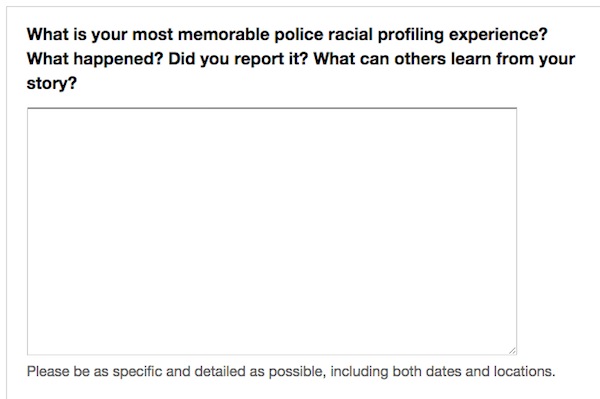
It started, like so many things now do, with a tweet. On August 12, three days after Michael Brown was killed by a police officer in Ferguson, Missouri. and just as the protests there were beginning to garner national attention, Tony Messenger, the St. Louis Post-Dispatch’s editorial page editor, sent a message to The Guardian’s U.S. opinion editor, Matt Sullivan:
@sullduggery Hey Matt, could you email me, please. I have an idea I want to run by you. tmessenger@post-dispatch.com
— Tony Messenger (@tonymess) August 12, 2014
Messenger was interested in some sort of collaboration to try and add a new dimension to the Post-Dispatch’s editorial page coverage of Ferguson.
“I realized that this was going to be so much more than a local and regional story, and was just brainstorming what could we do that expanded our local voice and that brought new voices into it both locally and nationally, beyond the normal things we do,” Messenger said.
To that end, the two editorial pages decided to collaborate on a project soliciting reader submissions about their own experiences with racial profiling from the police. They each put a submission form on their websites, sent out calls to readers to share their stories on social media with the hashtag #FergusonVoices, and also included links to the form in other stories on Ferguson.

We stand with the journalists. We've seen the hashtags. Let's hear more real #FergusonVoices: http://t.co/Lz48GuN3lg #Ferguson
— Matt Sullivan (@sullduggery) August 14, 2014
“There were two things that they were very good at that we weren’t traditionally,” Messenger said. “One is their digital focus — we do some things digitally that we do well, but generally that’s their focus and they do that very well. And two is their curation of others’ work, and going out and getting good op-eds, and getting strong interesting voices that are outside the traditional syndicated column voices.”
Messenger and Sullivan first met in May at the Scripps Howard Awards dinner in Cincinnati. The Post-Dispatch had won an editorial writing award, and The Guardian was accepting another award for its reporting on the NSA from the Snowden leaks. (“Journalists drinking is good, that’s what started the collaboration,” Sullivan joked. “You can blame Edward Snowden for this one too.”) And since then, Messenger said he had been following The Guardian’s work and thought they might be interested in a partnership.
When Messenger first broached the idea of collaborating with Sullivan, he said he didn’t have any particular ideas in mind, but they quickly realized that with the Post-Dispatch’s local readership combined with The Guardian’s much larger national and international reach, they might be able to attract a mix of submissions from those near and far from what was happening on the ground in Ferguson.
“I’ve said no to almost every old white guy from afar who’s trying to explain the story, and I’ve said yes to people from St. Louis, or people who are from there or who have had similar experiences, and we’re trying to mutually reinforce that an opinion page should be a voice of the people as anything else,” Sullivan said.
The Guardian is handling the submissions, though it wouldn’t provide specific numbers for how many they’ve received. A spokesman would only tell me they’ve gotten “dozens” of submissions, with about half coming from individuals from Missouri.
Both editors said they were still working out details on what the final product will look like from the submissions, but staff at both outlets are working to develop their own versions of interactives to publish on each paper’s website. Guardian developers built the initial submission form and made it embeddable on the Post-Dispatch’s site, but because of differences in how the two sites are run, each is creating its own format to present the submissions digitally. “It’ll look different in both places,” Messenger said.
Other newsrooms are thinking of nonconventional ways to cover Ferguson, a big story located far from the coastal cities where most national and global outlets have staffers stationed. The Huffington Post this week said it was asking readers to pay for a local freelancer to stick with the story once the protests die down.The Guardian and Post-Dispatch are currently limiting their partnership to the editorial pages, but they are taking it beyond their joint call for submissions. The Guardian on Wednesday published an unsigned editorial written by the Post-Dispatch’s editorial board after Attorney General Eric Holder visited Ferguson earlier that day. Messenger and Sullivan said that, while their main focus has been soliciting reader submissions, they hope to cross-publish more content. As we all spoke on the phone, Messenger was suggesting Post-Dispatch content that the Guardian could publish. “That reminds me, our artist did a nice Michael Brown drawing that we ran on our op-ed page, I’ll send you a link to that,” he told Sullivan.